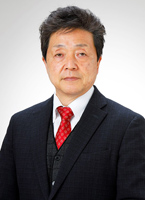“Human capital management that expands your horizons beyond the company!” Hajime Ota (Professor, Doshisha University)

”Human capital management,” which treats human resources as valuable capital, is attracting attention. This is because we have entered a full-fledged post-industrial society, and the value of people in management has increased even more. It is no exaggeration to say that the most important issue for companies is to develop and utilize human resources to the maximum extent possible, especially in Japan, which is poor in natural resources.
In fact, there is a growing movement to increase investment in human resource development, such as by enhancing training and career support, and to review work styles and treatment. Some companies are using AI and the Internet to streamline peripheral operations, creating more leeway and allowing employees to focus on more rewarding work.
However, it is also important to be aware that even if you try to develop and utilize human resources only within the company, there will be limits.
In today’s rapidly changing business environment, it is becoming difficult to secure the necessary workforce, including DX talent, within the company. If employee work styles become more widespread, such as job-based or self-employed, instead of membership-based, career development will no longer be completed within a single company. Naturally, options outside the company, such as changing jobs or becoming independent, come into consideration. Furthermore, in-house incentives such as challenging work, job titles, and remuneration are not always sufficient to maximize employee motivation.
Nowadays, it is no longer uncommon for young people to change jobs. With the spread of digitalization and remote work, the hurdles to becoming independent are becoming lower. There is also data showing that the percentage of employees considering changing jobs has increased, especially after the coronavirus pandemic.
However, many companies still consider it taboo for employees to change jobs or become independent. Employees are not allowed to talk about changing jobs or becoming independent within the company, and training and career development implicitly assume that employees will continue to work until retirement. If this is the case, the company will have a self-contained appearance that is far removed from the true feelings of employees, and no matter how many one-on-one meetings are introduced, it will not be possible to communicate with employees or build relationships of trust.
I think it’s about time for Japanese companies to switch to management based on the fluidity of human resources, or in other words, to ”open” type of human resources that is open to people outside the company.
For example, in in-house counseling in Europe and the United States, it is common for people to express their true feelings, saying, ”I want to change jobs in X years,” and the company will say, ”Okay, we’ll support you to make it easier for you to change jobs, so what can you do for the company? Will you be willing to make a contribution?” discussions will take place. The goal is to create a win-win situation for both companies and individuals. There are many cases where retired or independent employees and their former companies work together as business partners.
In recent years in Japan, an increasing number of companies are implementing ”comeback hiring” (U-turn hiring) and adopting ”alumni” system, in which retired employees are networked and assigned work orders. Many companies accept employees from other companies for side jobs or include freelancers as project members. Isn’t it time to take a step toward human capital management that expands its horizons beyond the company?
